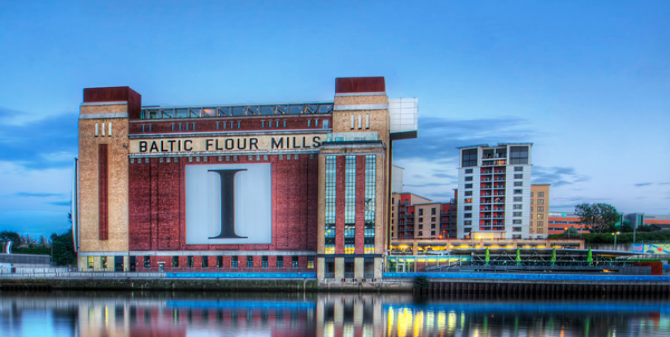Following the local elections, nearly half of the English population will have a metro mayor by May 3rd. Despite their extensive responsibilities, there is no official channel of exchange between the mayors and central government. A mayoral-ministerial standing committee, bringing mayors and relevant government ministers together could solve that problem, argues Paul Anderson.
It has been almost ten years since the signing of the first devolution deal. In November 2014, the UK Government announced the first deal with Greater Manchester and since then no fewer than 18 bespoke deals have been negotiated. On May 2nd, mayoral elections will take place in London as well as nine metro-mayoralties (East Midlands, Greater Manchester, Liverpool City Region, North East, South Yorkshire, Tees Valley, West Midlands, West Yorkshire and York and North Yorkshire). For some of these Mayoral Combined Authorities (MCAs), the 2024 elections are the third set of elections to be held since 2017, while for others – East Midlands, North East and York and North Yorkshire – this will be the first mayoral election. By May 3rd, almost 50 per cent of the English population will be led by a metro mayor, representing more than 50 per cent of England’s GDP.
The mayoral experiment is a fairly new innovation in English governance. Much like devolution in Scotland, Wales and Northern Ireland, subnational governance in England is characterised by substantial asymmetry with powers varying across each devolution deal. Divided into a four-level devolution framework, level 3 and 4 deals offer a more expansive set of powers (in return for an elected mayor), with (some) responsibilities over, among other things, adult skills, economic growth and investment, housing and planning, and transport. Since the first crop of mayors elected in 2017, it is fair to say they have made their mark. Recent polling by the Centre of Cities underlined the increasing visibility of mayors within their regions; an average of 74 per cent of people could name their mayor while only 43 per cent could identify their MP.
In light of the growth and acceleration of subnational governance in England, there is a need for some serious thinking on how to improve interaction and nurture cooperation between England’s metro mayors and central government. A mayoral-ministerial standing committee to bring together the mayors and relevant government ministers and officials could be a way forward.
Towards Enhanced Relations?
Relations between the UK and devolved governments have been notoriously weak, ad-hoc and in need of a “radical overhaul”. Tellingly, in his evidence to the Covid Inquiry, Boris Johnson thought it was “optically wrong … for the UK prime minister to hold regular meetings with other Devolved Administration first ministers, as though the UK were a kind of mini-EU of four nations”. Following a review published in January 2022, intergovernmental relations structures were reformed. The Joint Ministerial Committees were disbanded and replaced with a three-tier structure, topped by a Council chaired by the Prime Minister to meet with the devolved First Ministers. Notably absent from the Review was any focus on England. Since 1999, England has been somewhat of an anomaly in inter-governmental relations, with the UK Government performing an awkward “dual-hatted” role in these structures.
In its 2022 Levelling Up White Paper, the UK Government committed to bring “local leaders into the heart of government decision-making with a new role for mayors and strong local leaders in the shaping of local growth strategy”, but progress remains wanting.
Lord Dunlop, in his review of Union Capability, published in 2021, proposed the creation of an “English Regions Forum” to bring together subnational leaders in England and government ministers, while Gordon Brown’s Report on the UK’s Future, published a year later, advocated for the establishment of a “Council of England” formed of metro mayors and representatives from local and central government. Differences in nomenclature aside, these proposals recognise the need for metro mayors to have a stronger, more formal institutional voice and the importance of fostering more collaborative relations between England’s multiple centres of power.
Importantly, this is a point acknowledged by Mayors too. Over the last 8 months, I have been conducting interviews with Mayors, Chief Executives and officials across all 9 MCAs and civil servants in Whitehall about their experiences of MCA-central government relations. For Mayors, there is a general consensus that formalising relations in a mayoral-ministerial forum would be a welcome development. Relations and frequency of substantive interaction between MCAs and government departments varies significantly. A dedicated forum, therefore, is viewed as a vehicle to deliver more efficient formal interaction and enhance the quality of devolution. As one Mayor commented, “as the number of mayors grows, we need to move beyond the ad-hoc and towards more structure to ensure more constructive relations and policy collaboration”.
Several interviewees believed a formal forum would be beneficial for Whitehall too – increasing the knowledge and understanding of civil servants vis-à-vis the MCAs and English devolution and ultimately embedding such considerations within UK Government policymaking. Indeed, in my interviews with civil servants, the M10 network of mayors – a forum established by the Mayors to enable regular interaction among themselves – was considered “hugely helpful” and “massively beneficial” in providing a structure to facilitate engagement between the mayors as a collective and civil servants and government ministers. In the absence of formal Whitehall-instigated intergovernmental machinery, the mayors have sought to fill the gap.
The future of English devolution is unknown. In the context of an impending general election, there is a remarkable cross-party consensus in the value and potential of MCAs and metro mayors, with both the Labour and Conservative parties committed to widening and deepening devolution across England. For whichever party wins the next general election, challenges remain to resolve the patchwork of different governance arrangements across England and to enhance MCA-central government relations. The establishment of a mayoral-ministerial standing committee to bring together mayors and relevant ministers to consider matters across various policy areas would help address the latter.
In a recent parliamentary exchange between the former Mayor of South Yorkshire, Dan Jarvis, and the incumbent Secretary of State for Levelling Up, Housing and Communities, Michael Gove, the Secretary of State noted merit in the former’s proposition to create “a dedicated formal structure that will enable the Metro Mayors to work more effectively with Whitehall Government”. Green shoots of optimism are slowly emerging. Recognition of the problem, after all, is the first step to change.
All articles posted on this blog give the views of the author(s), and not the position of LSE British Politics and Policy, nor of the London School of Economics and Political Science.
Image credit: Lukasz Pajor on Shutterstock







